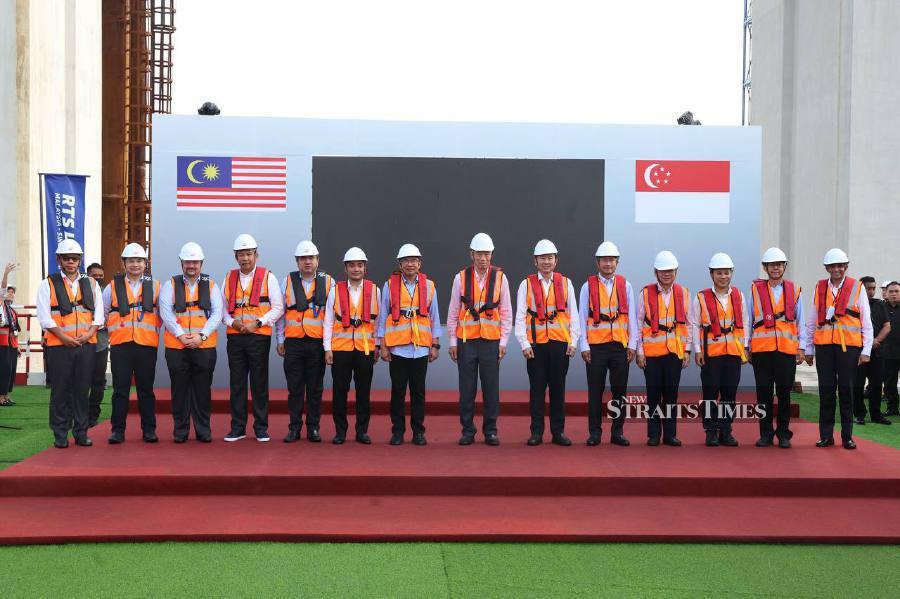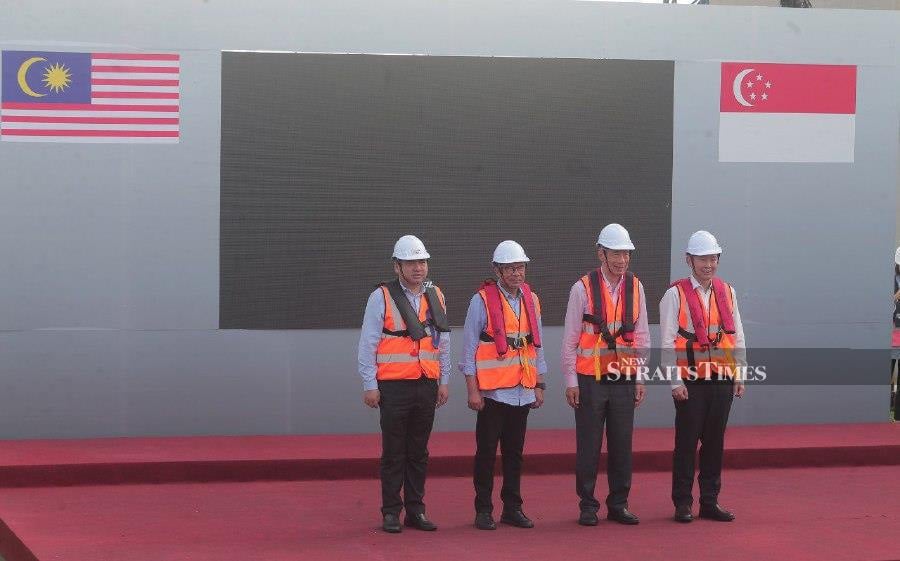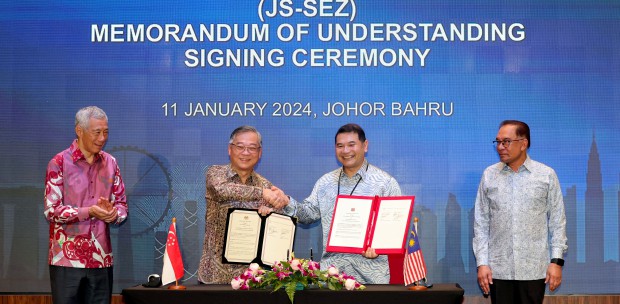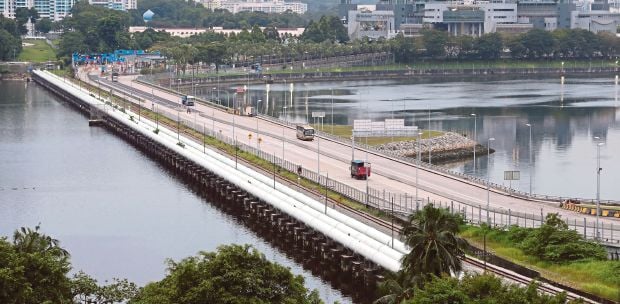JOHOR BARU: Prime Minister Datuk Seri Anwar Ibrahim and his counterpart from Singapore, Lee Hsien Loong, today witnessed the signing ceremony of a Memorandum of Understanding (MoU) for the Johor-Singapore Special Economic Zone (JS-SEZ) between Malaysia and Singapore.
The MoU was formalised by Economy Minister, Rafizi Ramli, and his counterpart, Singapore Trade and Industry Minister, Gan Kim Yong.
This MoU comes just two months after the 10th Singapore-Malaysia Leaders' Retreat in October, underscoring the continued efforts to establish a comprehensive agreement on the JS-SEZ.

The finer details are set to be ironed out at the 11th Malaysia-Singapore Leaders' Retreat.
Economy Minister Rafizi emphasised that the JS-SEZ opens up unprecedented economic opportunities by facilitating cross-border flows, fortifying the business ecosystem, and enhancing economic ties between Johor and Singapore.
"I have full confidence that the JS-SEZ initiative is the beginning of a transformation in the economies of both countries, fostering unparalleled relations and prosperity for Malaysia and Singapore," he added.
From the republic's perspective, Gan highlighted that the JS-SEZ exemplifies the potential when both nations complement each other and collaborate closely.
He eagerly anticipated the implementation of JS-SEZ, expecting it to bring substantial benefits to the business community and the people of both countries.
"It will be a bridge for both countries to leverage each other's strengths and seize opportunities for mutual growth," he said.
Apart from the agreement, Malaysia and Singapore will explore initiatives, including a one-stop business/investment services centre in Johor to streamline the application process for various approvals and licenses needed for Singaporean businesses to establish themselves in Johor.
Rafizi first proposed establishing the zone after a meeting with the Johor government in Iskandar Puteri in May of the previous year.
Two months later, both countries agreed to take further steps by establishing a special task force to examine the progress of the proposed special economic zone.
In September of the same year, Johor Menteri Besar Datuk Onn Hafiz Ghazi reportedly stated that the establishment of the Johor-Singapore SEZ would emulate the development efforts of the Shenzhen SEZ, which achieved a gross domestic product (GDP) of about RM1.93 trillion in 2021.
The success of the economic zone could lead to rapid development similar to Shenzhen in China, which transformed from a small town with a population of about 300,000 to an international high-tech metropolis inhabited by over 17 million people in four decades.
In 2022, Johor reportedly received foreign investments worth RM70.6 billion in various sectors. As the state's second-largest foreign investor, Singapore contributed around 70 per cent of Johor's total foreign direct investment (FDI) in the manufacturing sector.
Establishing the new economic zone will not only strengthen cross-border trade and business activities between Malaysia and Singapore but also have the potential to emerge as a key economic hub in the Asian region.





